- Featured
- Clean air
- Climate justice
- Consumer Rights
- Corporate Accountability
- Data access
- Early Childhood Development
- Economic fairness
- Education
- Electoral fairness
- Environmental justice
- Food justice
- Gender based violence
- Grants/social assistance
- Health
- Housing and infrastructure
- Industry interference
- Land Justice
- LGBTQIA+ rights
- Media/ information access
- Public transport
- Racism
- Reparations
- Safety
- Sanitation
- Service Delivery
- Sexual and Reproductive Rights
- Social justice
- Unemployment
- Womxn's rights/ gender equality
- Workers' rights
- More
-
Mpho Mashamba, Tell us why we are not getting the 5% Increase on our StipendsWe feel like we are being taken advantage of, and it’s disheartening because we know how desperately we need these internship positions. It’s painful to see people in the department disregard our agreements, believing we won’t speak up out of fear of losing what we desperately need. We urgently need the department to clarify the expectations mentioned above. We are exhausted from being treated this way. It’s time for us to come together and demand the clarity we deserve, to stand up for ourselves and ensure our voices are heard.93 of 100 Signatures
-
We Demand an end to Corruption in South Africa’s Government Now!Corruption, mismanagement, and political interference are destroying the foundations of our democracy. Every South African is affected, whether through collapsing municipalities, unsafe communities, failing services, or stolen public resources. When leaders act without transparency or accountability, ordinary people pay the price. This campaign is important because we cannot continue to watch our country deteriorate while those in power remain untouched. We must stand together to demand honest leadership that puts people first. But this is not just about policies or numbers—it’s about real human lives. Communities are suffering because basic services do not arrive on time. Young people remain unemployed while tender corruption enriches a connected few. Whistleblowers who speak out are threatened, silenced, or even killed, leaving the truth buried and justice denied. Many of us have felt this pain personally, whether in our own households or in the stories of neighbours who struggle daily. If we do not take action now, the next generation will inherit a broken system. Public pressure is one of the most powerful tools we have. When citizens unite, decision-makers cannot ignore our voices. A strong, united petition forces government leaders to respond, to explain themselves, and to implement changes they have avoided for years. We have seen this across the world: when communities mobilise, demand transparency, and refuse to be silent, leaders are pushed to act. By adding your name, you help amplify a collective call that no official can easily dismiss. This campaign matters because South Africa deserves better. We deserve a government that serves people, not politicians. By standing together, we can push Parliament, the Presidency, and key oversight bodies to take meaningful action—protecting whistleblowers, exposing corruption, and restoring dignity to our institutions. Change will not come from the top. It will come from ordinary people raising their voices, one signature at a time. Join us, and help build the South Africa we know is possible.4 of 100 SignaturesCreated by Maniki Goodstaff Rapuleng

-
Make the striking workers at pallet making giant, Chep South Africa, permanent now!Please join the campaign to support the strike at Chep South Africa. You can attend the strike - please contact 082 812 1934 for details of daily pickets - or contribute to the workers' strike fund here: Chep Workers Solidarity Fund Standard Bank Account number 10258528166167 of 200 SignaturesCreated by Casual Workers' Advice Office media hub
-
Tell the Minister Gayton Mckenzie To Release The Mzansi Golden Economy CCl Beneficiary List 2025.The importance of the Mzansi Golden Economy is to create growth for global competitiveness and engage with the creative space to make more projects recognised worldwide. This will create more job opportunities for the Cultural & Creative Industry. The grant was set to support projects that will focus on addressing social ills in the Communities, and this includes a high rate of unemployment, gender based violence (GBV), workshops, bullying, xenophobic attacks and more. Part of this fund was also meant to be used for educational workshops and provide training opportunities for up-and-coming Creatives in dance, art and theatre performances. The Department of Sport, Arts and Culture receives 2 billion annually. Each year, the beneficiary is supposed to get 9 million per project to create 50 jobs with stipends starting from R5,000 upwards. When a project is given 9 million, more jobs will be created. The Minister changed this arrangement and gave each project 2 million. This, in turn, forces many organisations to work with a tight budget. Gayton McKenzie's refusal to release the list of Mzansi Golden Economy beneficiaries has resulted in international funders pulling their funds from festivals and Cultural heritage events. 90% of jobs due to be created have been lost since February 2025. This increases the rate of unemployment in South Africa even more. According to statistics, South Africa has more than 90% of the youth aged between 18-24 who are unemployed, with an increasing number affecting women and people living with disability. Many Creatives have found themselves applying for international funding with no communication stating whether they have received funding from the department. These results were supposed to have been released by the department in January 2025. Many projects have not started and have been postponed to do work that would take place on June 16, which is an essential holiday for South Africa’s history. Does Gayton McKenzie even understand the importance of June 16, and why should we acknowledge our struggle heroes like Hector Peterson? If he does, why does he stop these projects from being funded?, Why does he want to erase our history?. One of the Directors, Snenhlanhla Precious Nene, who runs a Non-profit organisation in Lenasia South, says,” We are done asking for answers. What Mr McKenzie is doing to the economy of South Africa is unconstitutional and has violated the Labour Act. Already, we have lost four employees since February, and we have not been able to host projects on GBV. These difficulties have been happening since Gayton McKenzie became Minister. He does not think about the organisation working well with the communities, but he feels for himself. What will happen to the victims of GBV, and where will they get the information they need from? He will give them food parcels?, Will he train them for work preparation and skills development? He should respond to our demands because he only thinks of himself. The Minister’s stance that he will not release funding results for the MGE until he receives the report of the Investigation he had directed the Acting Director General to conduct on all creatives and artists who had received the MGE funding in the last five years has been criticised by Motsholo Mmoletshane. Mmoletshane, an African National Congress (ANC) member of Parliament who sits on the Portfolio committee of Sports, Arts & Culture, has said that Mr McKenzie must organise a forensic audit on the organisation he claims is misusing funds. She further told him that the Minister cannot hold public funds, as there are artists/ Organisations that are genuinely suffering need the funds to sustain their livelihoods and uplift their communities. She advised that the Minister investigate using external people because some officials pay more money to the wrong people and organisations. Sizwe Ndlovu, who runs an Art Centre in KwaZulu-Natal, says the minister is correct in investigating the department officials, as some officials are corrupt to the core. They are misleading the Minister by plotting lies about Artists and organisations. There is corruption, and it should be dealt with, but the Minister has no right to hold funds. He should release the funds to the beneficiaries of the MGE. For the past three years, my organisation has been denied funding by the same corrupt officials who take funds and give them to their friends and families, whilst true artists die because of unemployment, which causes depression. The Minister’s focus should be directed at his officials, who are corrupt to the core, not the organisation, “says Sizwe. Unemployment is already high in South Africa. Let’s be clear, having a Minister who is bullying the Cultural & Creative Industry is not acceptable. He is abusing the public office and his position as a Minister in the history of South Africa. We cannot have a Minister and his Department who use funds as a tool to control artists. We cannot have a Minister who thinks the Creative Industries do not create jobs. Many organisations/artist companies are the leading job creators in South Africa, and 60% of jobs come from the creative industries. One Festival Event can create 60 job opportunities, an Art Exhibition 20 jobs and 30 jobs in theatre. All these opportunities are substantial and long-term in nature. Many communities have young people assisted by the Mzansi Golden Economy funding, and need stipends to survive the economy. These also include matriculants who have passed matric and need training, workshops, and tools to gain relevant experience to develop their careers. Although the Minister should understandably fight corruption in his ministry, it is irresponsible for him to withhold funds that should contribute to artists' livelihoods and Communities. The Minister needs to urgently listen to our demands. We will stop at nothing to feed our families and fight for justice in the arts and in our Communities. We are calling on all artists, musicians, actors, youth and peoples in the Creatives as well as communities throughout the country to come and stand with us We need to came together and sign this petition, this is not only for Creatives Industry, but it is for community development and bringing back job opportunities. Without funds, there are no Jobs in the Creatives Space !, no training programs, workshops, community outreach projects, and no stipends to support our families,SIFUNA IMISEBENZI.229 of 300 Signatures
-
UIF must pay back our money on time!I applied for UIF unemployment benefit in October 2022. It was in July 2023. Got communication in August 2023 that my claim has been approved, now I have to submit a continuation of payment for the release of the money. I got the first payment in October, got the second one in November then got the third one in January 2024. I am still waiting for the next payment which has been delayed. When I call the Call Centre, every time I get a different story. The call centre agents always say they will escalate the matter but I find no joy in calling them anymore because they always don't have answers to any of my concerns. When you go to the Department of Labour offices, they will tell you that the you might get your money the following week but that does not happen. I believe that the UIF PAYOUTS should provide us with temporary relief on monthly basis when we loose a job. As this is an insurance, they also tell us how much are we going to receive and for how long instead of withholding that information to us. Other people on the group that I belong to have applied for maternity benefits but they only get one payment and then they have to go back to work without receiving all that is due to them. The Minister of Employment and Labour, Thulas Nxesi should intervene to address these delays with the monies that are due to us and fast track the payments to the beneficiaries.38 of 100 SignaturesCreated by Modise Molefe
-
Urge the Minister of Finance & National Treasury to continue funding short-term work opportunitiesWe know that one of the biggest challenges for young people trying to get into the labour market is the lack of work experience, with the National Treasury estimating that only 2 in 10 young people are likely to find a job. By providing young people with valuable opportunities to grow competencies and learn work skills, the Basic Education Employment Initiative, the Social Employment Fund and other public employment programmes support the private sector by preparing a generation of young people to transition into the labour market, effectively derisking youth unemployment. There is no single silver bullet, but short-term opportunities that are part of the Stimulus are crucial in addressing that gap, and leading young people into sectors that critically need support or those that are rife with potential for growth. These programmes also drive money into local economies while providing skills - this is a key strategy to improve South Africa’s economic growth, offering our future workforce a springboard for income generation. Incomes, paid at the National Minimum Wage, have boosted purchasing power for entire households; young people reported spending their wage mostly on food, in small enterprise and the informal sector as well as in major retailers, or using it as seed capital for entrepreneurship ventures. Our economy depends on it now.25,228 of 30,000 SignaturesCreated by Youth Capital
-
Treasury did big sugar businesses influence your decision?On the 1st of April, the day the HPL increase was to start, Treasury issued a statement postponing the increase [1]. Treasury did not justify this last-second decision, which has raised concerns about what evidence was used to make this decision. Did Treasury choose to put profits before health by agreeing to the demands of the sugar industry? The sugar industry has a conflict of interest when it comes to the sugary drinks tax. That's why it is important Treasury reassure the public that the sugar industry did not influence their decision. The sugar industry has used its power and resources to attack the sugary drinks tax [2]. HEALA has called on Treasury to provide the research and information that was used to make the decision to delay the HPL increase by a year. HEALA has also called on Treasury to confirm whether they engaged with the sugar industry and its associates. If so, in the interest of transparency, Treasury must share meeting minutes and records of engagements and communication with industry. But Treasury has refused to respond to HEALA. The organisation had to resort to submitting a Public Access to Information Act (PAIA) application, but the deadline to respond has come and gone. But if enough of us come together, we can turn up the public pressure on Treasury to be transparent and accountable when it comes to decision-making processes which greatly impact the health of millions of people in South Africa. [1] Media Statement: Release of Revised Draft Rates and Monetary Amounts and Amendment of Revenue Laws Bill. National Treasury. 1 April 2022. [2] Well-conceived sugar tax needs further strengthening to save lives of millions. By Mikateko Mafuyeka and Petronell Kruger for Daily Maverick. 22 September 2022.48 of 100 SignaturesCreated by HEALA

-
Stop closed door meetings between government and big businesshttps://youtu.be/nuVHJT_rhgI Imagine your teacher smoking in the classroom. For some of us, this was the reality until new rules were put in place by government in 1993 [6]. But why had government not acted sooner? In their paper published in 2003, Mia Malan and Rosemary Leaver outline the relationship between the biggest tobacco business and government [7] [8]. Government eventually put public health before profits, thanks to the work of health advocates. But big businesses are still using their power to protect their profits at our expense. Researchers have pointed out that big businesses have worked to delay and delegitimize important health policies by using their associations and different strategies [9]. Researchers and civil society groups are not allowed to attend a standing meeting between the National Department of Health and big food businesses [9]. State capture has shown us we have a lot of work to do. But we are making some progress in improving transparency and accountability. Politicians have to declare financial interests [10], and political parties now must disclose who funds them [11]. We need to keep building on this momentum. We can't afford to have a repeat of 2014 where big businesses that make food like polony did not agree with government's proposed hygiene rules and instead wanted to self-regulate [12] [13]. Government should have stood up to those big businesses in 2014 and put the new rules in place anyway. Government has to stand up to big business bullies. Their job is to serve the people, not private interests. References can be found here: https://amandla.mobi/big-business-bullies-references8,399 of 9,000 SignaturesCreated by amandla mobi member

-
Minister Patel - reject the EU & US ‘bad deal’ - this deal does not save lives!After 17.5 months of dragging their feet, negotiations are currently underway to reach a quick ‘deal’ at the World Trade Organisation (WTO) on the TRIPS WAIVER proposal - boldly led by South Africa and India since October 2020. MInister Patel is in charge of the negotiations for South Africa. The leaked text of the proposed ‘deal’ shows they are not negotiating a waiver, as originally requested, but rather, conditions and clarifications, which after this much time and deaths, represents a poor compromise. It will be a shame if Minister Patel supports the bad deal contained in the leaked text. He should not. The leaked text represents the interests of the EU and the US and other vested interests. It is a very bad ‘deal’ that does almost nothing to advance the demand for equitable access to vaccines (and other health products) for the majority of the world’s population - and yet the poorest and most marginalised everywhere have suffered the worst effects of the pandemic. The South African Government should REJECT this deal which is related to the ongoing TRIPS Waiver negotiations for fairer access to COVID-19 technologies for everyone, everywhere. We call on organisations and individuals in South Africa to sign onto an ‘Open Letter’ to Minister Patel and the South African Government. You can read and sign the letter here: https://forms.gle/GTT9kmf9nECFfSF86 For more information on the leaked text and reactions to it, please see: https://healthjusticeinitiative.org.za/2022/03/24/trips-waiver-negotiations-leaked-text/148 of 200 SignaturesCreated by Health Justice Initiative and African Alliance

-
The CCMA must open and stop failing workers #OPENCCMACAMPAIGNRight now, workers are more vulnerable than ever. The COVID-19 pandemic has resulted in job losses, rising cost of living and workers who have been unfairly dismissed and treated need the services of the CCMA to help them get justice. The CCMA must be functioning well so that workers can depend on the institution to fight labour issues. But the CCMA has closed its doors on vulnerable workers and expects workers to refer their case online, which is inaccessible to those who need the most support. The Casual Workers Advice Office (CWAO) has reported that the CCMA is outsourcing things like printing forms to internet cafes around their offices, where there have been incidents of people being charged R40 to refer their case [2]. This is a service the CCMA is supposed to provide for free [3]. The #OpenCCMACampaign is an initiative of 40 organisations. Our aim is to fight to transform the CCMA into an organisation that respects workers and is guided by social justice. The #OpenCCMACampaign will embark on a series of planned actions to challenge planned budget cuts to the CCMA, among other demands. Various actions have taken place throughout the year. We have protested at various CCMA offices [4] and will continue to do so. The CCMA has also threatened the CWAO with legal action for exposing these dodgy operations. We take this action against our partner organisation seriously. But this will not stop us from challenging budget cuts to the CCMA and their own anti-worker actions. Many workers depend on the CCMA to leave the institution’s future in the hands of the bosses and the leaders of the NEDLAC federations. On 30 March, a CCMA statement noted that although R90.1 million has already been deducted from its 2020/21 budget, the projected cuts over three years have been reduced from over R600 million to R301 million. It also confirmed that part-time commissioners would begin to hear cases again, starting from 1 April. None of these changes addresses our core demands for an immediate reversal of the budget cut; for a significant expansion of the CCMA budget; for the full-reopening of the CCMA’s walk-in facilities; for the permanent employment of all part-time commissioners, and for a total transformation of the culture and practices of the institution which have become explicitly anti-worker. We note that the crisis engulfing the CCMA will not be resolved through ‘stakeholder’ meetings and press briefings. We call on all progressive worker organisations to abandon the politics that drives them to look for a ‘seat at the negotiating table’ instead of joining forces with other worker organisations on the ground. [1] http://www.labour.gov.za/employment-and-labour-welcomes-siu-probe [2] https://twitter.com/CWAO_ZA/status/1369599779781611523?s=20 [3] Workers pay for CCMA services that were once free, Masego Mafata and Liezl Human for GroundUp, April 2021 [4] https://twitter.com/CcmaOpen/status/1374674101915283457?s=20173 of 200 SignaturesCreated by #OpenCCMACampaign
-
#ThePeopleSay #WakeUpSA: Raising our voices against state capture and corruptionWe have elected leaders and bestowed on them the responsibility to govern, to enable us to achieve a better life for all – not themselves. We, as people of South Africa, have a right to know in whose interests’ decisions – supposedly in "our” name – were and continue to be made. The culture of secrecy and impunity must come to an end if our democracy is to thrive. Transparency and accountability are non-negotiable, as too are the requirements for transformative actions to address the injustices that remain embedded in our social, economic and political systems. Our constitution is revolutionary in its design, but the values and vision that it prescribes can only materialise if embraced by the state through which it is enacted. As people of this country, we all support the value and vision in the Constitution which protects the rights of the people in our country, it is the bedrock of our democracy and foundation of the rule of law. We, the undersigned, support/endorse this open letter to raise our voices in solidarity against state capture and impunity, and to say now is the time for us to be heard. The realities of the current moment cannot be met with silence and complacency. #ThePeopleSay #Wake-Up SA! Civil Society endorsements: Alternative Information and Development Centre (AIDC) Centre for Applied Legal Studies (CALS) Council for the Advancement of the South African Constitution (CASAC) Corruption Watch (CW) Dullah Omar Institute (DOI) Equal Education (EE) Freedom Under Law (FUL) Legal Resources Centre (LRC) My Vote Counts (MVC) Open Secrets Organisation for Undoing Tax Abuse (OUTA) Public Affairs Research Institute (PARI) Section27 (S27) Southern African Faith Communities’ Environment Institute (SAFCEI) Right2Know (R2K)78 of 100 SignaturesCreated by Civil Society Working Group on State Capture (CSWG)

-
Stop Johannesburg's R50 recycling fee that threatens reclaimers' livelihoodStarting from 1 July, residents living in houses worth more than R350 000 could potentially pay a R50 “recycling fee” if the City of Johannesburg’s proposed waste management tariff is approved. The City said that the R50 additional levy will go to Pikitup to extend a separation at source (S@S) programme which has already been piloted in a few suburbs in Johannesburg. The City places the bill at the feet of “affluent” residents to extend the S@S pilot programme yet provides no research or statistics to support it. Residents are expected to buy into a system they know nothing about despite having very little trust in the government to provide services and use the money for its intended purpose. Not only does this recycling fee raise more questions and concerns for residents, it is a grave threat to the livelihood of reclaimers who depend on the collection of recyclables for their daily living. The extension of this project will decrease reclaimers’ access to bins which will significantly decrease their income. Reclaimers collect between 80 - 90 % of used packaging collected for recycling, saving municipalities millions of rands per year. The contribution of reclaimers cannot be overlooked or underestimated. There are alternatives to the City's proposal. As African Reclaimers Organisation (ARO), we have been piloting our own S@S programme, where we work directly with residents in Brixton and Auckland Park who separate materials for us. Instead of destroying our jobs, Pikitup should expand our pilot across the city. We call on residents to: 1. Sign this petition to stop the recycling fee and protect reclaimers’ jobs 2. Object to the recycling fee by completing this IDP comment form: https://share.hsforms.com/1xa2Cg-qnRxajkHAoDwsivw469tl (deadline is 8 May 2021) 3. Get in contact with ARO on Facebook/ Instagram or email to see how we can develop a resident-reclaimer S@S programme in your area No recycling without reclaimers! Social media: @africanreclaimers Email: [email protected]3,728 of 4,000 SignaturesCreated by Eli Kodisang
.png)


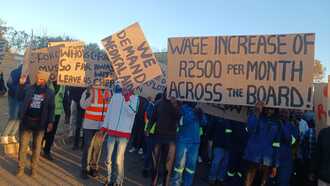


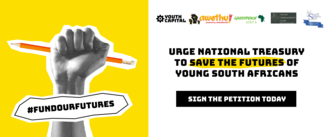
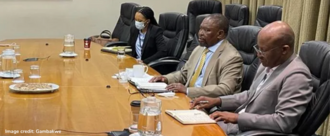



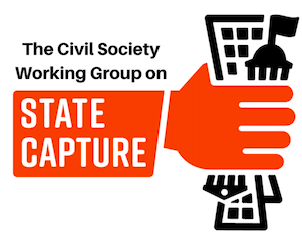
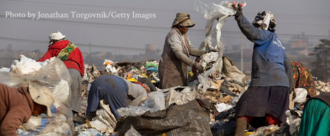.png)